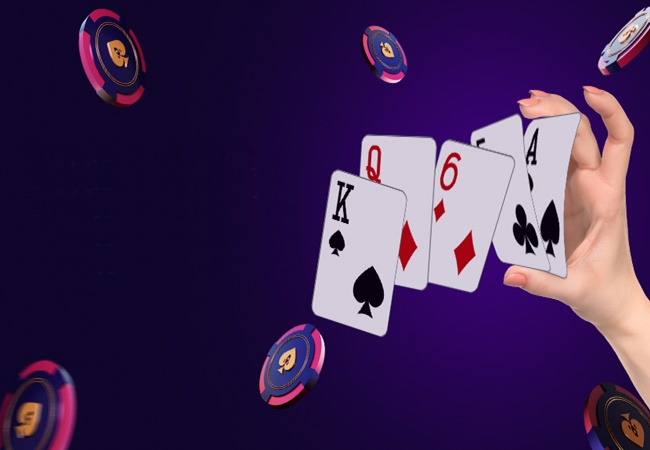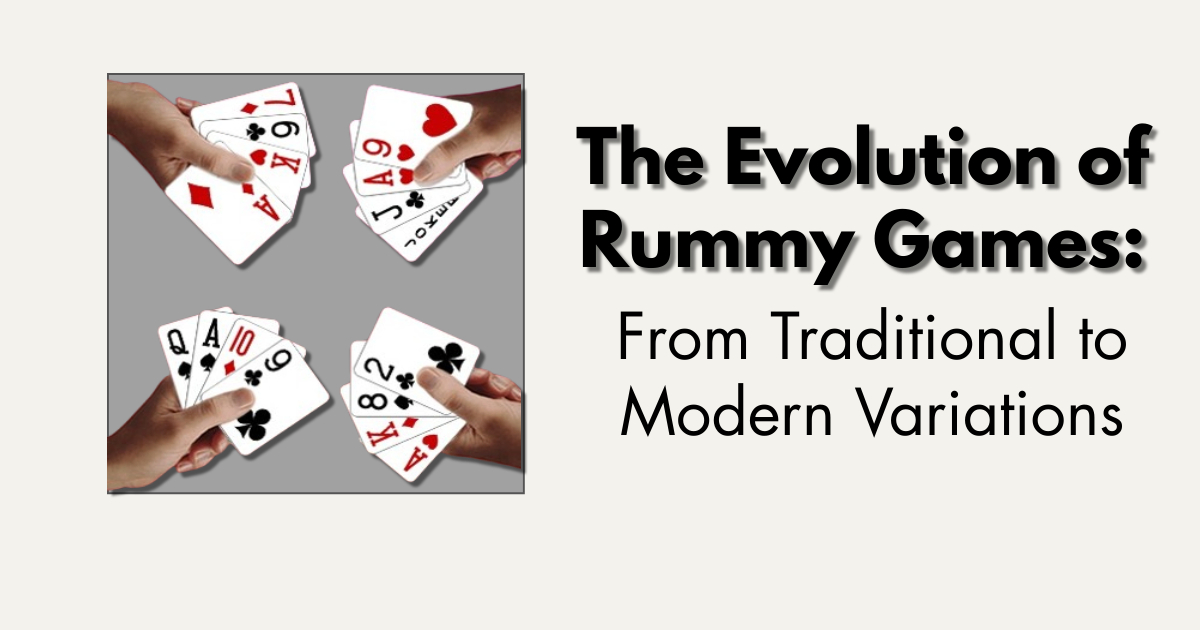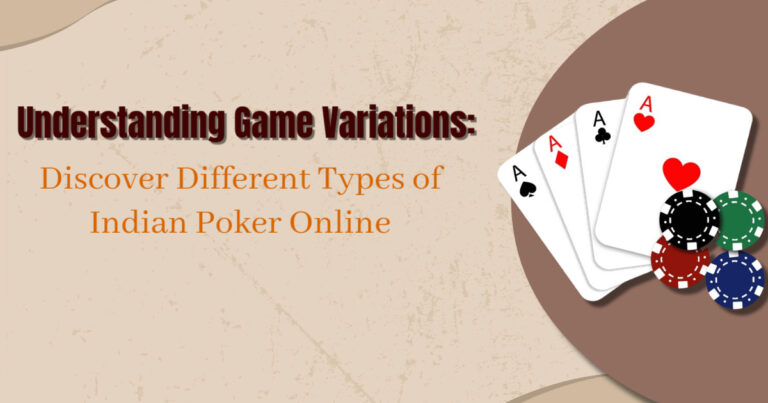The Evolution of Rummy Games: From Traditional to Modern Variations
Rummy, a beloved card game enjoyed worldwide, has undergone a remarkable evolution from its traditional roots to embrace a wide array of modern variations. The evolution of rummy reflects its enduring appeal and global adaptation. Originating in the early 20th century, Rummy games were initially played with a standard deck of cards and focused on melding sets of matching cards. Over time, this simple premise has spawned numerous iterations, each adding unique twists and strategies that appeal to diverse player preferences and cultural contexts.

Traditional Roots
The origins of rummy games can be traced back to early forms of card playing in Asia and Europe. The exact birthplace is debated, with some attributing its beginnings to Mexico and others to the United States. However, the game gained significant popularity in the early 1900s, particularly in the United States, where it became a staple in social gatherings and family game nights. Traditional rummy games, such as Gin Rummy and Indian Rummy, adhered closely to the basic rules of forming sets and sequences from a deck of cards, fostering strategic thinking and quick decision-making among players. Similar to Teen Patti Stars, the evolution of rummy reflects its enduring appeal and global adaptation.
Evolution of Rummy: Milestones
As rummy games spread globally, they began to evolve, influenced by regional preferences and innovations in game design. One notable milestone was the introduction of Contract Rummy, which added a contractual element where players had to fulfill specific combinations or contracts to win. This variant introduced a new layer of complexity and strategic planning, appealing to players seeking deeper engagement.
In the mid-20th century, the advent of online gaming revolutionized the evolution of rummy, making it accessible to a broader audience beyond local playgroups. Online platforms offered convenience and the ability to play against opponents from around the world, further fueling the game’s popularity. This digital era also saw the emergence of Speed Rummy and Rummy Tournaments, catering to competitive players looking for fast-paced gameplay and opportunities to showcase their skills.

Modern Variations
The 21st century witnessed a proliferation of modern rummy variations, each designed to cater to different play styles and preferences. One such evolution of rummy is Rummy 500, which introduces point-based scoring and a discard pile mechanism, adding strategic depth and unpredictability. Other popular modern adaptations include Kalooki (a Caribbean variant), Canasta (which incorporates multiple decks), and Oklahoma Gin (known for its rapid gameplay and unique scoring rules).
Mobile applications have further accelerated the evolution of rummy, offering intuitive interfaces, multiplayer options, and even AI opponents for solo play. These apps have made rummy more accessible than ever, appealing to casual gamers and seasoned enthusiasts alike.
Cultural Impact and Adaptation
Beyond its gameplay mechanics, rummy has left an indelible mark on various cultures, adapting to local tastes and traditions. In India, for instance, the game of Indian Rummy has become deeply embedded in social gatherings and festive celebrations, reflecting its cultural significance and widespread appeal. Similarly, variations like Conquian in Latin America and Mahjong Rummy in Asia highlight the evolution of rummy, showing how the game has adapted to resonate with diverse cultural contexts while retaining its core principles of melding and strategy.
Future Trends
Looking ahead, the future of rummy games appears vibrant and dynamic. Advances in technology, including virtual reality and augmented reality, promise to offer immersive rummy experiences that blend real-world social interaction with digital gameplay. These innovations are likely to attract a new generation of players while continuing to engage existing enthusiasts through innovative gameplay mechanics and interactive features.
In conclusion, the evolution of rummy games from traditional to modern variations underscores its enduring appeal and adaptability across generations and cultures. Whether played around a kitchen table, on a smartphone screen, or in a virtual reality environment, rummy continues to captivate players with its blend of strategy, skill, and social interaction, ensuring its place as a timeless classic in the world of card gaming.








